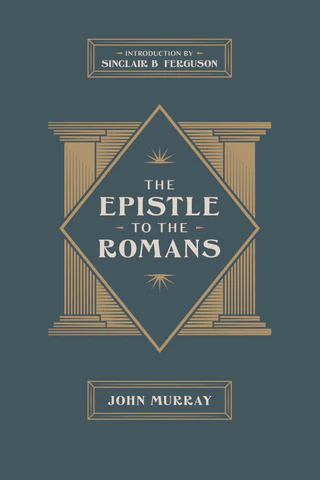
John Murray
Reviewed by: Ryan M. McGraw
The Epistle to the Romans, by John Murray. Westminster Seminary Press, 2022. Hardcover, 688 pages, $29.99. Reviewed by OP minister and professor Ryan M. McGraw.
Why reprint an “old” commentary on Romans, appearing in two volumes in 1959 and 1965? Focusing on current exegetical and linguistic issues, commentaries can notoriously feel “out-of-date” rather quickly, though the Word of God abides forever (Isa. 40:8). Such books have their use, but exegetical and interpretive trends frequently go out of style. Additionally, the author of this reprint specialized in systematic theology rather than New Testament.
Yet John Murray, professor of systematic theology at Westminster Theological Seminary from 1930–1966, has here given the church a modern theological classic. Transcending the passing issues of the time, Murray wrote this volume as a theologian who prized and practiced solid biblical exegesis as the ground of true theology. The result is that his commentary combines detailed attention to the Greek text of Romans with sound theological insight in a way that gives readers the best of systematic and biblical theology, presenting “the gospel of Christ” (Rom. 1:16 NKJV). In short, this work is a theological masterpiece, which may be Murray’s best work.
As expected, Murray draws readers into Paul’s masterpiece chapter by chapter and verse by verse. However, with good reason, Romans has served as the scaffolding of major theological systems, notably Philip Melanchthon’s Loci Communes and John Calvin’s Institutes. Covering most major biblical doctrines, with Christ’s gospel as a focal point, Romans is a natural model for theologians like Murray to follow. In distinction from many commentary writers, Murray did not shy away from making theological evaluations along the way. This is why his treatments of key issues, like natural revelation (ch. 1), human depravity (chs. 2–3), Christ’s atonement (ch. 3), justification by faith (ch. 4), the imputation of Adam’s sin (ch. 5), sanctification in union with Christ (chs. 6–7), glorification (ch. 8), election and reprobation (ch. 9), the future conversion of the Jews (ch. 11), and Christian living (chs. 12–16), have a timeless quality. Readers familiar with Murray’s writings will notice immediately the substantial overlap between such topics and the focused attention of his writing career. While most commentaries today segregate exegesis from theology, and then both from God’s message to the church and equipping pastors to preach, Murray’s commentary does all these things together, making his work an enduring treasure for the church.
One example will suffice from his comments on Paul’s moving doxology in Romans 11:33–36. Murray treated the exegetical options in the Greek text, including Paul’s citation of the Septuagint, without losing Paul’s flow of thought in context (428–431). Yet he balanced his exposition with profound theological insights, such as the fact that while we cannot comprehend God, we can apprehend him (428), the distinction between God’s knowledge and wisdom (429), the independence of God’s decrees and their execution in providence (430), God’s self-sufficient sovereignty and independence (431), and God as the source, agent of direction, and “last end” of all things (431). He concluded appropriately that “to him must not only all glory be ascribed; to him all glory will redound” (431). This is exegetical, doxological theology at its best.
As Sinclair Ferguson writes in the new introduction, “Professor Murray’s approach to commentary writing transcends developments in technical scholarship, and therefore this volume remains his gift to the church for all generations” (xv). While it may sound strange to commend reading a commentary as simply a good book, readers will find Murray on Romans gripping and useful, both for grasping theology and for preaching the Word.
March 30, 2025
On the Trail with a Missionary
March 23, 2025
Midnight Mercies: Walking with God Through Depression in Motherhood
March 16, 2025
March 09, 2025
Zwingli the Pastor: A Life in Conflict
March 02, 2025
February 23, 2025
African Heroes: Discovering Our Christian Heritage
February 16, 2025
© 2025 The Orthodox Presbyterian Church